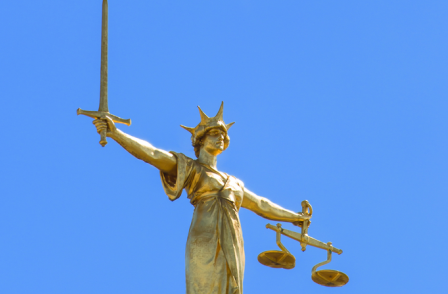
A judge refused to allow the media to name two teenagers who battered a vulnerable woman to death in her own home after hearing how one of them has tried to kill herself a number of times during her trial.
A court order has prevented the media from naming of the two girls, who are now both 15, since they first appeared before magistrates in 2014.
After they were convicted of murder last week week, media organisations applied for the order to be lifted.
On Friday the Hartlepool Mail published a front-page story reflecting an online poll run by the newspaper which found 89 per cent in favour of naming the girls.
But trial judge Mr Justice Globe declined, saying that the welfare of the two girls was at risk.
"They (defence barristers) emphasise the fact that each defendant poses a risk of self-harm. In one case, it is a real and present danger. Removing anonymity is likely to exacerbate what is already a dangerous situation," the judge said on Thursday last week.
The older girl had tried to kill herself on a number of occasions, he went on.
He told the girl herself: "There have now been four attempts, two at this court, where I am satisfied you have made real efforts to commit suicide during the course of the trial.
"The most recent one was here at court in the midst of my summing-up late on Monday afternoon.
"Those looking after you are on high alert to look after your safety. I am prepared to take notice of your current state of health as a mitigating feature. It is also highly influential in my decision as to anonymity."
The judge said one member of court staff had saved the girl's life with her "prompt and immediate action".
He added: "In circumstances where I might be satisfied that both of you were stable, strong-minded defendants convicted of serious crime, the balance might arguably have been in favour of the lifting of anonymity."
The judge concluded: "I am sure that everything that can be done will be done to try and protect you from yourself.
"Nonetheless, despite the terrible thing that you have done and the sentence that must be imposed upon for it, I am concerned and disturbed by what I regard as a heightened real risk that identification followed by a press blitz will elevate the risk to your life to such an extent that I am satisfied that there is a real and immediate risk to your life if you were to be identified as one of the two girls who murdered Angela Wrightson."
The judge accepted there was legitimate public interest in the press naming the girls, although he disputed the suggestion that removing their anonymity would help deter other offenders.
"This type of offence is extremely rare and it is arguable that no further deterrence is necessary or, if it is, the naming of the individuals will add little to the fact that those responsible have been brought to justice, been convicted and been sentenced," he said.
The judge also referred to the first trial of the two girls which had to be halted due to comments made on social media.
He said: "I am reminded of events following the opening of the case at Teesside last summer when there was a blitz of extreme and disturbing comments posted on Facebook by members of the public.
"The effect of a similar blitz upon anonymity being lifted is likely to result in the identification of juvenile witnesses, the families of both defendants, their carers and their schools.
"In turn, that could detrimentally affect the lives of both defendants, who remain in fragile and vulnerable emotional states."
He said Cleveland Police advised him that there were no obvious benefits that arise from disclosing the defendants' names other than to further sensationalise the case.
During the trial journalists were banned from posting court reports on Facebook in case they prompted prejudicial comments from users of the social networking website.
Email pged@pressgazette.co.uk to point out mistakes, provide story tips or send in a letter for publication on our "Letters Page" blog
